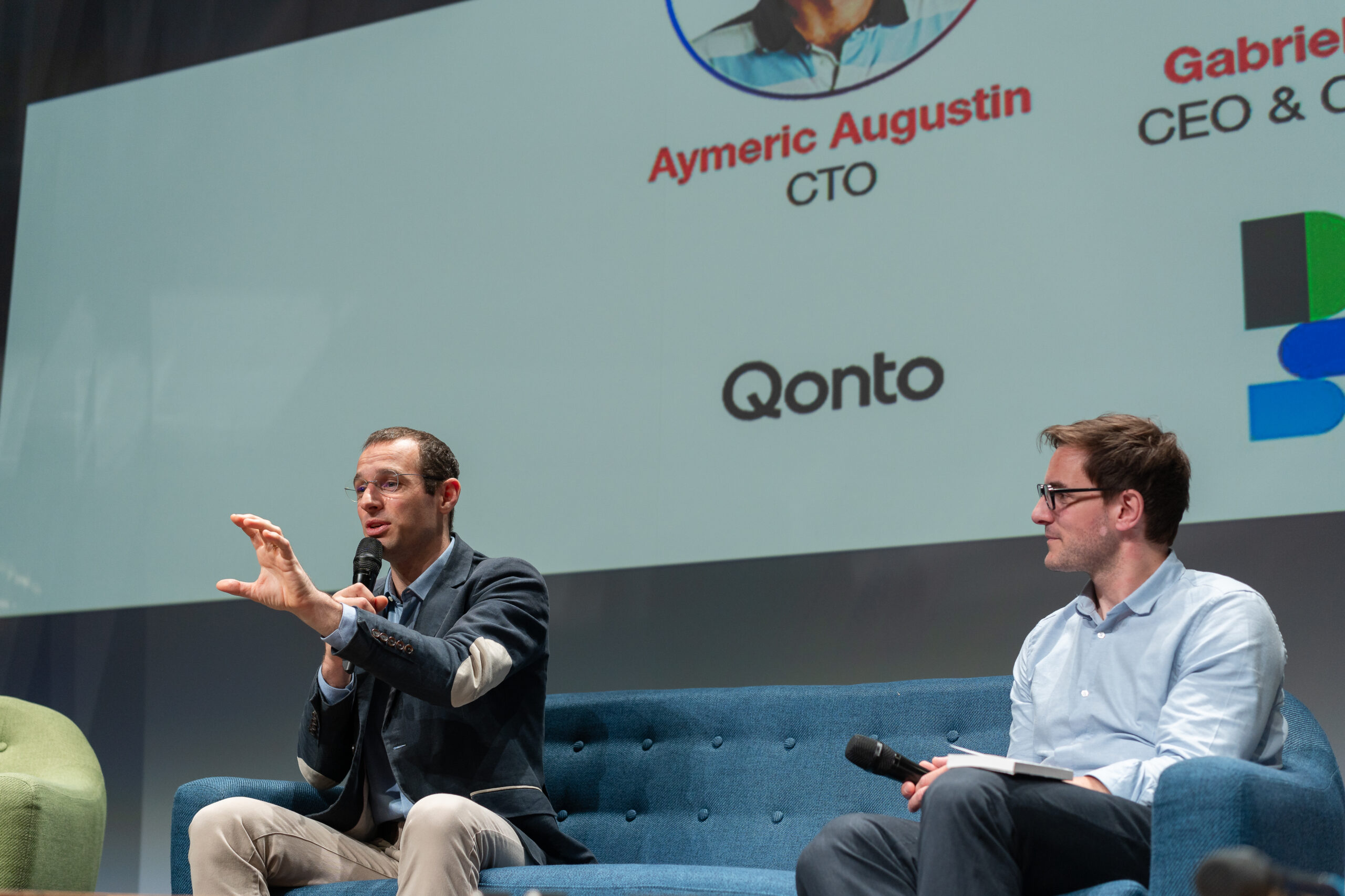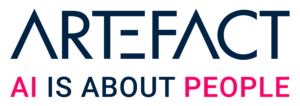Key learnings from the discussion between Aymeric Augustin, CTO at Qonto, and Gabriel Hubert, CEO & Co-founder of Dust, at the Adopt AI Summit by Artefact - June 5, 2024
“About Aymeric Augustin: Aymeric is the CTO at Qonto, a company that simplifies financial management for freelancers and SMEs. He has been with Qonto for several years, driving the integration of AI to enhance customer service and operational efficiency. Under his leadership, Qonto has adopted innovative AI solutions like Dust to automate tasks and improve productivity.
About Gabriel Hubert: Gabriel is the CEO and co-founder of Dust, a company that enhances team performance with AI-powered assistants integrated into internal workflows. He focuses on using generative AI to provide relevant, up-to-date results for clients like Allen, Payfit, and Qonto. Gabriel has positioned Dust as a key player in automating processes and improving business efficiency.”
Use of AI at Qonto
Qonto uses Dust to automate certain tasks, increasing productivity by 20%. For example, AI checks incorporation documents to identify prohibited activities, reducing processing time from 15 to 12 minutes. The development and implementation of these solutions take approximately two weeks, with an immediate return on investment.
“We allow fast-moving teams to increase their performance by deploying AI-powered assistants across their internal workflows. Assistants that give them access to the best frontier models, but also have context on the company’s data and knowledge so that those models are grounded in up-to-date information and provide useful results on their workflows.”Gabriel Hubert, CEO & Co-founder of Dust
Challenges and considerations
One of the challenges highlighted by Aymeric is the initial resistance to adopting AI tools. People are often hesitant to start using new technology that closely mimics human capabilities. Overcoming this resistance requires effective change management and demonstrating the tangible benefits of AI. Additionally, while AI can significantly improve efficiency and productivity, there is a need to balance the excitement and hype around AI with realistic expectations and measurable business metrics to ensure sustainable and meaningful integration.
Adoption of AI by teams
Operations teams at Qonto are culturally open to adopting new technologies. AI was introduced through internal suggestions, demonstrating the importance of participative innovation. Bottom-up adoption is essential, with concrete use case examples showing improvements in internal processes.
“AI lets us do our job of providing business banking accounts, managing bookkeeping, and more, faster, better, and cheaper. It starts with automating tasks, which seems easy but needs to be done. This has translated into thousands of hours saved per year, allowing us to focus on more meaningful tasks.”Aymeric Augustin, CTO at Qonto
Examples of AI use cases
Qonto launched an AI-based logo generator during a hackathon, allowing users to create a personalized logo when opening their account. This feature was adopted by 30% of users from the day it was released, showing the positive impact of AI on user experience.
Future perspectives and evolutions
Aymeric emphasizes the importance of keeping up with rapid innovations in AI and remaining adaptable to competition. He mentions that the adoption and integration of AI within teams are often driven by managers who encourage their teams to use these new tools.

 BLOG
BLOG



